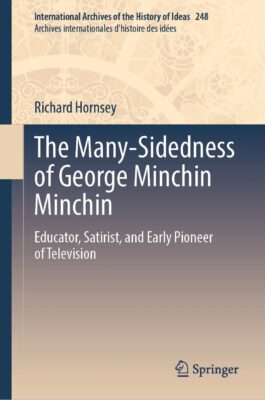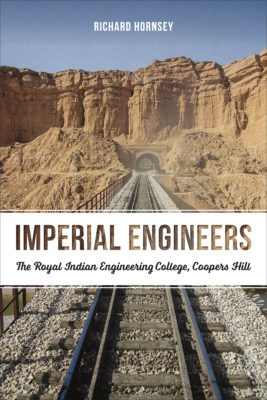Welcome to my research web site. I have divided it into three sections:
- recent writing on the history of science and engineering
- a miscellany of stories comprising historical 'rabbit holes'
- my previous technical research.
Historical writings
My interest in the history of engineering education resulted from spending many years working on the establishment of the Lassonde School of Engineering.
The Many-sidedness of George Minchin Minchin
I am delighted to report that my new book on Victorian educator, satirist and early pioneer of television, George Minchin Minchin, is now available in its e-book format from Springer.

This book is the first complete biography of George Minchin Minchin (1845–1914), professor of applied mathematics at the Royal Indian Engineering College. Minchin’s extraordinary range of accomplishments offers a unique inside view of the major technological and educational developments of late nineteenth century Britain. The scientific community’s excitement during the early days of electromagnetic theory, wireless telegraphy, and x-rays are revealed by Minchin’s letters to eminent friends (notably the Maxwellians, Oliver Lodge and George Francis Fitzgerald). This book also traces Minchin’s little-known pioneering work on photoelectricity, which led to the first electrical measurements of starlight and laid the foundations for solar cells and television. Minchin’s mathematical textbooks were praised for their lucidity, and his advanced pedagogical thinking underpinned his lifelong work on reforming science education. He explained scientific concepts for a general audience using science fiction poetry and critiqued contemporary society in sharp and humorous satires. These works provide fresh perspectives on the place of science in Victorian society. This book is for anyone fascinated by the late nineteenth century revolution in electrical technologies.This is also a valuable read for historians of science, and for those interested in technical education, and science and society in Victorian Britain.
Imperial Engineers
My 2022 book Imperial Engineers is available from the University of Toronto Press.

Established in 1871 on the outskirts of London, the Royal Indian Engineering College at Coopers Hill was arguably the first engineering school in Britain. For thirty-five years the college helped staff the government institutions of British India responsible for the railways, irrigation systems, telegraph network, and forests. Founded to meet the high demand for engineers in that country, it was closed thirty-five years later because its educational innovations had been surpassed by Britain’s universities – on both occasions against the wishes of the Government of India.
Imperial Engineers offers a complete history of the Royal Indian Engineering College. Drawing on the diaries of graduates working in India, the college magazine, student and alumni periodicals, and other archival documents, Richard Hornsey details why the college was established and how the students’ education prepared them for their work. Illustrating the impact of the college and its graduates in India and beyond, Imperial Engineers illuminates the personal and professional experiences of British men in India as well as the transformation of engineering education at a time of social and technological change.
Historical rabbit holes
Some stories didn't make it into other works. I call these 'rabbit holes' because they usually resulted from pursuing interesting stories too far.
I hope you find them interesting too.
Engineering research
For much of my career I ran a more typical engineering research laboratory. Please see that section for papers and theses published from that work.
